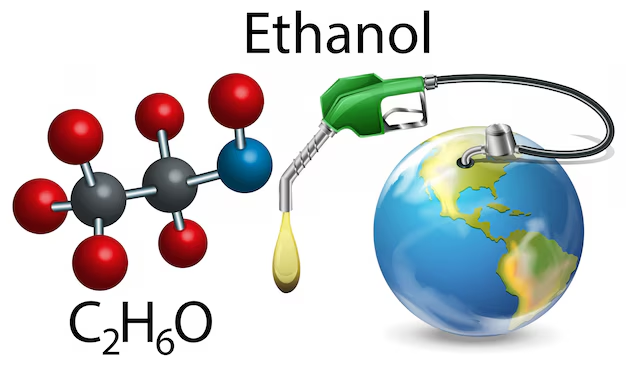India has emerged as one of the fastest-growing consumers of biofuels globally, making significant strides in increasing ethanol blending over the years. Ethanol, a vital biofuel, plays a pivotal role in reducing India’s dependence on fossil fuels while curbing carbon emissions and air pollution. The country’s ethanol blending programme witnessed substantial growth, with the blending rate rising from a mere 1.53 percent in 2013-14 to an impressive 10.17 percent by 2022. Having achieved its 10 percent ethanol blending target, also known as E10, five months ahead of schedule in June 2022, India now sets its sights on achieving a 20 percent blend, or E20, by the end of 2025.
This increase is attributed to various policy initiatives and amendments, such as the National Policy on Biofuels (NPB) 2018, which set targets for ethanol blending like achieving 10 percent ethanol blending or E10, by 2021-22 and advancing the target to E20 by 2025-26. The introduction of the Pradhan Mantri JI-VAN Yojana in March 2019 further supported this growth by providing financial support for integrated bio-ethanol plants and announcing measures to fix ethanol prices based on raw material costs.
India is also a champion of ethanol adoption, and to further this goal, it initiated the launch of the Global Biofuel Alliance at the G20 Leaders’ Summit held in September 2023 in New Delhi. This alliance is an ambitious initiative aimed at fostering international collaboration to accelerate the development and adoption of biofuels worldwide. This move marks a significant step towards accelerating the adoption of cleaner, greener fuels globally, thereby supporting decarbonisation goals.
However, to meet its ethanol requirements for achieving E20, India will need substantial quantities of ethanol. According to a report by Arcus Policy Research, by 2026, India will need an estimated 13.5 billion litres of ethanol, with 10.16 billion litres for fuel blending alone. This demand highlights the importance of enhancing ethanol production capacities, feedstock availability, and distillation capabilities to ensure the country’s energy security and reduce its reliance on traditional fossil fuels.
At the recent U.S.-India Biofuels Summit 2024, held in New Delhi on 23 April 2024, increasing production capacities was one of the key points of discussion. At the summit, there was emphasis on the need for diversifying feedstocks for ethanol production. While India’s ethanol production has heavily relied on sugarcane, crops such as maize emerged as an alternative feedstock due to its advantages, such as requiring less water than other crops, making it a more resource-efficient option. Maize can be grown in all three seasons, with post-rainy season corn being particularly well-suited for ethanol production. Additionally, utilising agricultural, forestry, and industrial waste for ethanol production was a key topic for discussion, given the urgent need for waste management in India. Maximising ethanol production while minimising the environmental footprint is crucial, and byproducts from bioprocessing can help in supporting a circular economy model for increased sustainability.





